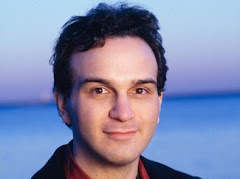Baiba Skride offered the KL audience a captivating solo violin as well as a violin and piano recital after her dazzling performance of the Sibelius Violin Concerto with Gilbert Varga and the MPO from the night before.
Skride opened her recital with JS Bach's Solo Sonata No 1 in G minor BWV1001. In the opening improvisatory Adagio, Skride quickly entered a kind of personal cosmos, offering the entirely hushed audience a gorgeous reading of this sublime movement. In the following Fugue, she showed impassioned playing whilst exhibiting supreme confidence and technical accuracy in the nefarious multiple stopping of the complex fugal patterns. In the lilting Siciliano, Skride displayed remarkable subtle variations in her tone and expression. In the concluding Presto, the line scurried back and forth at warp speed with remarkable energy throughout the running semi-quaver figurations.
A thematic link to Skride's next offering was the fact that Eugène Ysaÿe wrote his Solo Sonata Op 27 No 1 in G minor after he heard the famous late Hungarian violin Joseph Szigeti playing Bach's BWV1001. Dedicated to Szigeti, Ysaÿe's work also abounds in technical difficulties. Skride despatched the opening Grave with its challenging multiple stopping magnificently, whilst imparting a musing and frail quality to the Fugato second movement. In the Allegretto poco scherzoso third movement, Skride made wide contrasts of the jazzy and pastoral elements of the music and concluded grandly in the Finale.
Prokofiev's Violin Sonata No 1 in F minor Op 80 was Skride's next offering. Joined by pianist Akiko Danis, Skride gave a magnificent account of this sonata which is increasingly popular on recordings and in the concert hall. Skride's carefully graded bowing suited the sombre and contemplative opening of the Andante Assai, whilst the muted ascending and descending violin scales created the effect of "wind in the graveyard" as the composer once described.
The second movement, the Allegro brusco, seemed to have been conceived of as a savage conflict between warring forces, represented by the piano and violin, both engaged in bitonal octaves and discordant rhythmic cross-fire. As a contrast to the barbaric second movement, Skride’s muted violin playing and Danis’ great delicacy in shading on the piano were most impressive in the gentle Andante third movement. The rhythmic shifts in metre of the final movement were expertly dealt with by Skride and Danis. The return of the first movement theme was played with icy beauty before a funereal knell brought the sonata to its enigmatic close.
Ravel’s virtuosic Tzigane closed the well-balanced programme. The opening solo violin passage was hypnotic in Skride's hands, with potency and warmth as well as a generous sprinkling of glitter and exhilarating changes of pace. However, some serious timing and ensemble problems between the violin and piano emerged in the Quasi cadenza section before resolution emerged ahead of the Moderato segment. Danis' piano support was sympathetic and pinpoint, with the duo bringing out all the colours with abounding technical brilliance and clearly having fun with the quirkiness and sheer gypsy virtuoso extravaganza.
Monday, 14 May 2018
Skride & Danis star in Prokofiev's First Violin Sonata.
Labels:
Akiko Danis,
Baiba Skride,
JS Bach,
Prokofiev,
Ravel,
Tzigane,
Ysaye
Subscribe to:
Post Comments (Atom)














































No comments:
Post a Comment